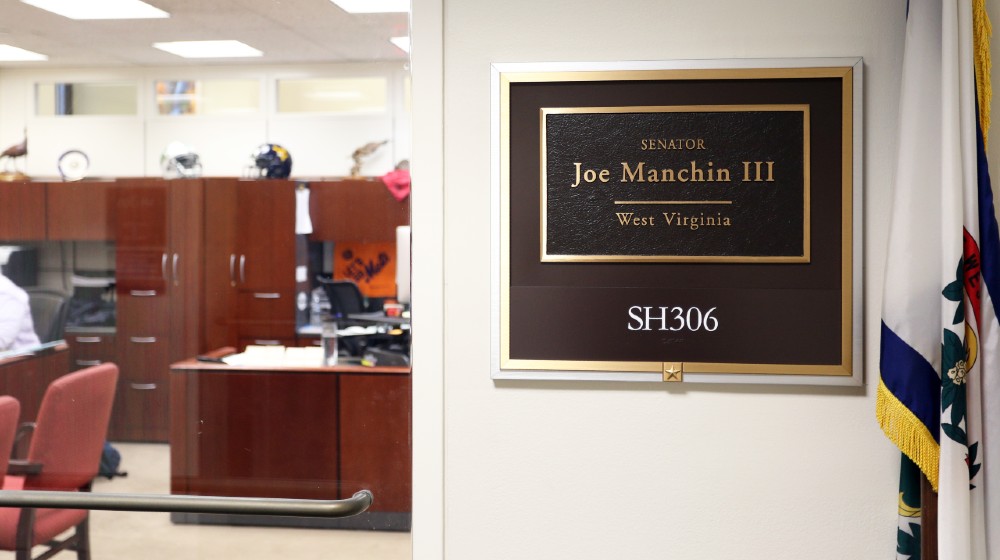News
Democrat Senator Praises GOP Infrastructure Plan

Democrat Senator Joe Manchin (WV) praised a counteroffer GOP infrastructure plan from his Republican counterparts. He said he supports a more focused version of President Joe Biden’s $2 trillion infrastructure package.
RELATED: Next Wave of Stimulus Could Be $2 Trillion Infrastructure Bill
Praise for GOP Infrastructure Plan
In an interview, the moderate Democrat said he favors a more targeted approach compared to the all-inclusive plan proposed by Biden.
He thinks items not directly related to the infrastructure should have a separate bill instead. “I do think they should be separated, because, when you start putting so much into one bill, which we call an omnibus bill, makes it very, very difficult for the public to understand,” he said.
The GOP plan is “a good start,” and that a bipartisan group needs to discuss traditional infrastructure issues such as repairing roads and bridges.
“And they have worked it together. So, we know it has bipartisan support,” Manchin said. “We just have to look to see if we have gotten everything in there that we need. And we will be working on that together. So, I’m very, very pleased with that.”
Republican Support Needed
Biden said he wants to have an infrastructure bill that Republicans will support. However, it remains unclear what legislation will receive the consensus he wants.
On their own, Democrats can ram their plans through without Republican support via budget reconciliation. If this happens, a simple majority vote can win approval for the bill. However, Manchin earlier said he opposes the use of reconciliation to pass bills.
Republican Senator Shelley Moore Capito (WV), who backed the GOP bill along with Senators Roger Wicker of Mississippi, Pat Toomey of Pennsylvania, and John Barrasso of Wyoming, said the feedback is positive.
She said she’s getting an “encouraging” response from the Biden administration regarding their plan. She said she talked to GOP ranking members, to the committee chairmen, and to Democrats.
“This is an active conversation, and I think that it’s a good beginning,” she said. She echoed Manchin’s stance about prioritization. “The president asked for our plan, and we thought it was really important to put a marker in to show what we thought was important, what's going to be the job-creating infrastructure plan, and how much it would be,” she said.
GOP Infrastructure Plan Focuses on Infrastructure
Instead of the Democrat’s $2 trillion behemoths, the GOP infrastructure plan only costs $568 billion. It managed to pull down the costs by removing items that do not fit the description of infrastructures, such as care for the elderly and disabled, investments in electric vehicles, and job training programs.
Instead, the proposal will only focus on roads and bridges, broadband, public transport, water systems, railways, ports and airports, and safety measures.
In addition, Biden’s plan also wants a corporate tax rate increase to fund the program. The GOP version does away with tax increases altogether.
Instead, they propose repurposing previous COVID-19 programs that remain unspent and tack user fees on electric vehicles. The GOP insisted that any funding should partner with spending from state and local governments. The infrastructure plan should also encourage private-sector investments and financing.
Watch the Reuters news video reporting that Democrat Senator Joe Manchin favors the smaller infrastructure bill:
Do you support the GOP infrastructure plan, as opposed to the Democrat plan? Do you agree that it’s necessary to strip the original proposal of non-infrastructure programs? Let us know what you think about the infrastructure in the US, and how it can improve. Share your thoughts below.











